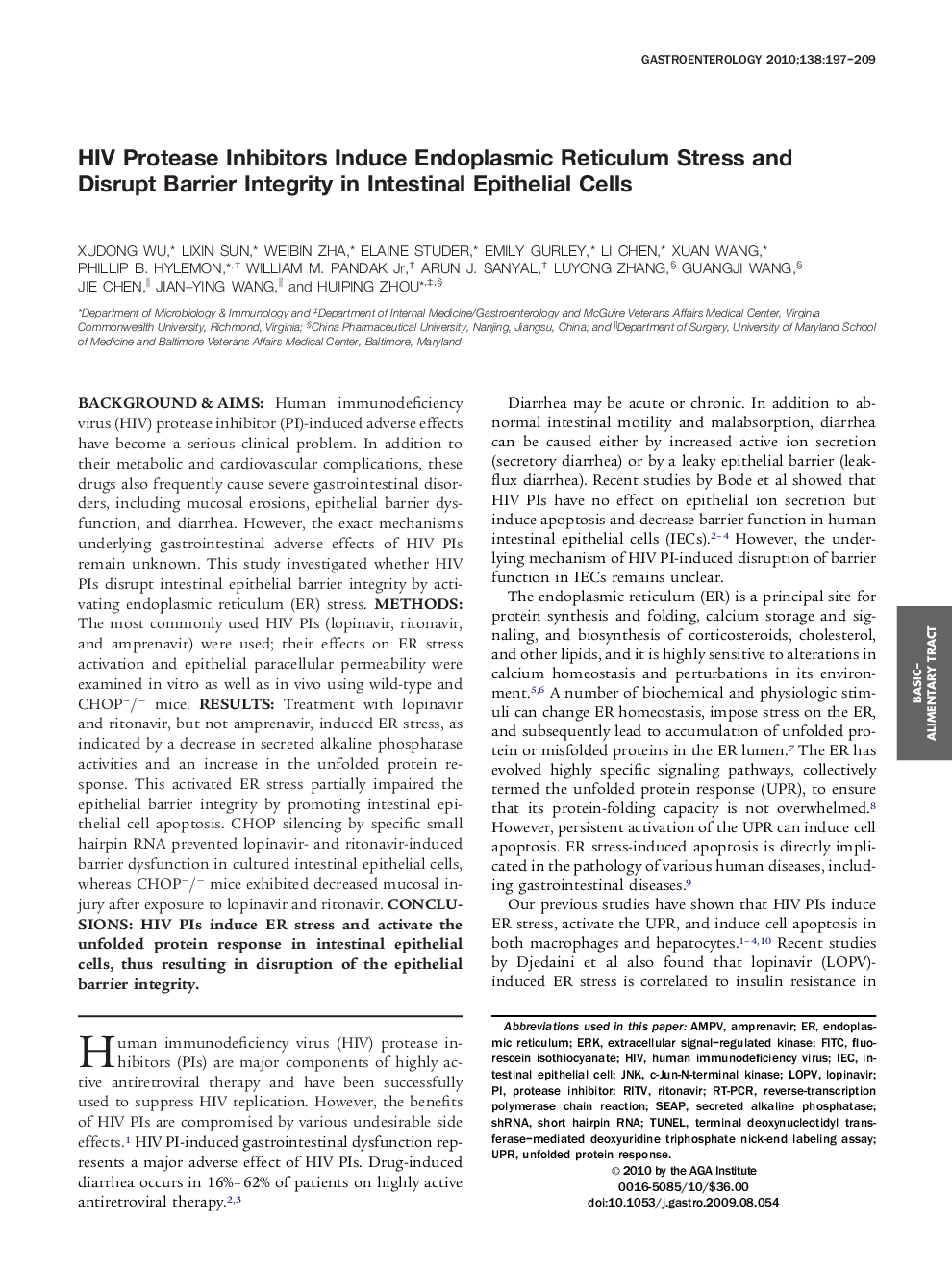| Article ID | Journal | Published Year | Pages | File Type |
|---|---|---|---|---|
| 3298368 | Gastroenterology | 2010 | 13 Pages |
Background & AimsHuman immunodeficiency virus (HIV) protease inhibitor (PI)-induced adverse effects have become a serious clinical problem. In addition to their metabolic and cardiovascular complications, these drugs also frequently cause severe gastrointestinal disorders, including mucosal erosions, epithelial barrier dysfunction, and diarrhea. However, the exact mechanisms underlying gastrointestinal adverse effects of HIV PIs remain unknown. This study investigated whether HIV PIs disrupt intestinal epithelial barrier integrity by activating endoplasmic reticulum (ER) stress.MethodsThe most commonly used HIV PIs (lopinavir, ritonavir, and amprenavir) were used; their effects on ER stress activation and epithelial paracellular permeability were examined in vitro as well as in vivo using wild-type and CHOP−/− mice.ResultsTreatment with lopinavir and ritonavir, but not amprenavir, induced ER stress, as indicated by a decrease in secreted alkaline phosphatase activities and an increase in the unfolded protein response. This activated ER stress partially impaired the epithelial barrier integrity by promoting intestinal epithelial cell apoptosis. CHOP silencing by specific small hairpin RNA prevented lopinavir- and ritonavir-induced barrier dysfunction in cultured intestinal epithelial cells, whereas CHOP−/− mice exhibited decreased mucosal injury after exposure to lopinavir and ritonavir.ConclusionsHIV PIs induce ER stress and activate the unfolded protein response in intestinal epithelial cells, thus resulting in disruption of the epithelial barrier integrity.
